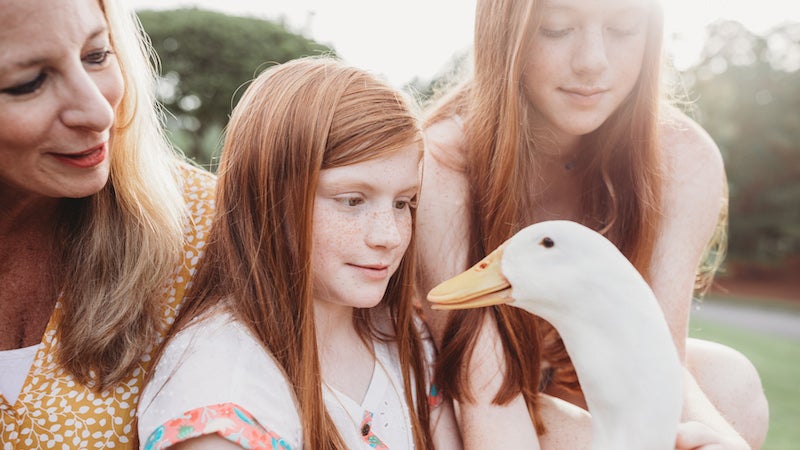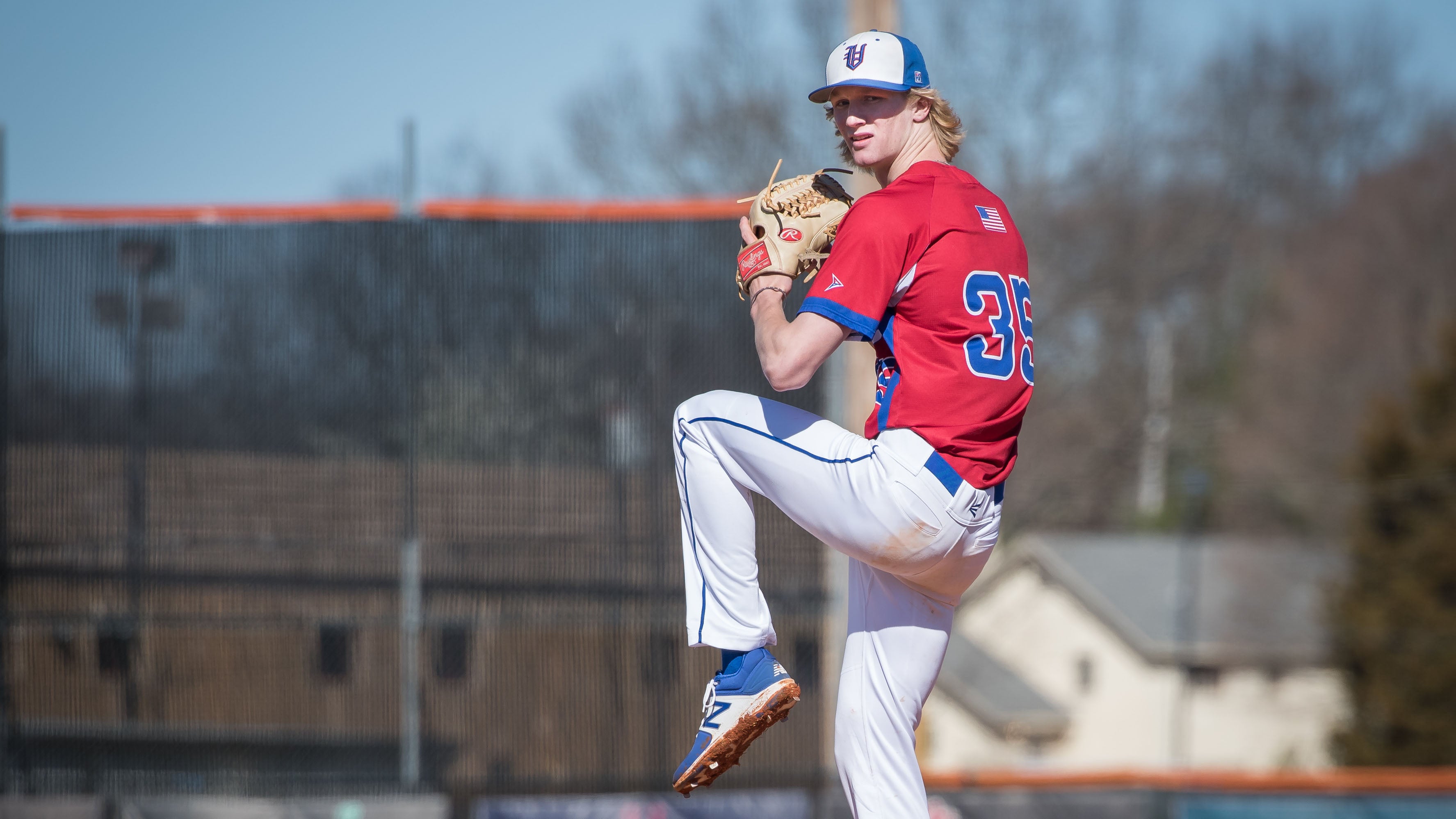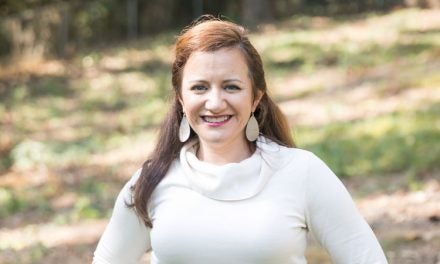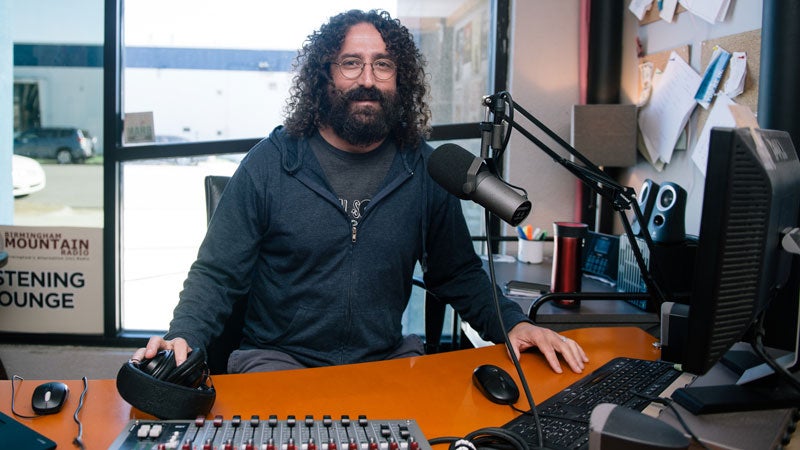By Sara Guven
A large rabbit sits comfortably in the Loftin family’s front yard as the sun sets. It’s a beautiful twilight hour, and cicadas chirp serenely from the woods. But that’s nothing out of the ordinary for them. Ducks, geese, rabbits, tortoises, deer and more have all pleasantly relaxed near their home. The Loftins’ passion for animals is especially prevalent in what has come to be their defining role in the neighborhood: the “duck family” of Liberty Park.
Dave and Stacy along with their older daughter Abigail and twins Ella and Will moved to their Liberty Park home seven years ago, and they quickly realized they were close to the pond on Lake Parkway—and the family of eight ducks that lived there at the time.
Over time, the ducks all started coming to their yard every morning to eat. The family observed that the domesticated breed, Swedish black ducks, were quite terrible at raising offspring. “The female ducks would lay the eggs, but they wouldn’t sit on (the nest). They’d sit on it for a couple hours, then they’d get back in the pond,” Dave recalls.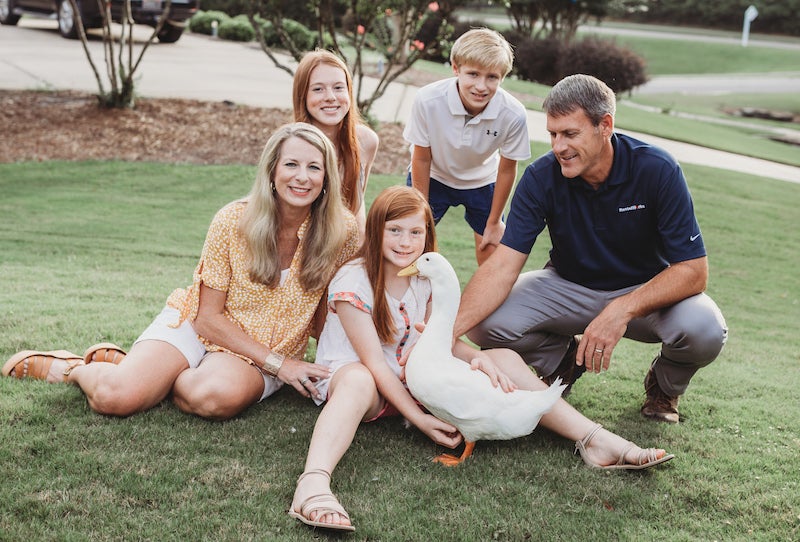
Abigail particularly loved to watch the ducks. One day, about four years ago, she noticed a female duck coming out of the bushes. Following a prompt investigation, the family found a nest with 12 eggs. The female’s nest was dangerously situated across a busy road, so they decided to bring the eggs to their home. “Well, they’re not going to make it anyways,” Dave recalls thinking—so they decided to give it a shot.
At first, they really didn’t know what to do with them. “A lot of people ask us, ‘How do you know so much about ducks?’ I’m like, ‘Well we don’t really know so much about ducks, but you can Google anything!’” Dave says with a laugh. So, armed with the knowledge of the internet, they set out to care for the animals. To make sure that they would develop properly, Stacy, who teaches at Vestavia Hills Elementary Liberty Park, borrowed incubators from some science teacher friends. In the incubators, the eggs had to be turned at least twice a day, so the family incorporated it into their daily routine. Ella turned them in the morning, Will did after school, and Abigail had the night shift.
After a period of cautious care, the family came home on the day of the twins’ birthday party to find the ducks starting to hatch. “It was a school day the next day. I was like, ‘I am not missing out on this!’ so I took that whole incubator to school,” Stacy recalls. “My whole class sat like this the entire day,” she says as she mimics her students peering over the container, “and looked over the little window in the top to watch them be born.”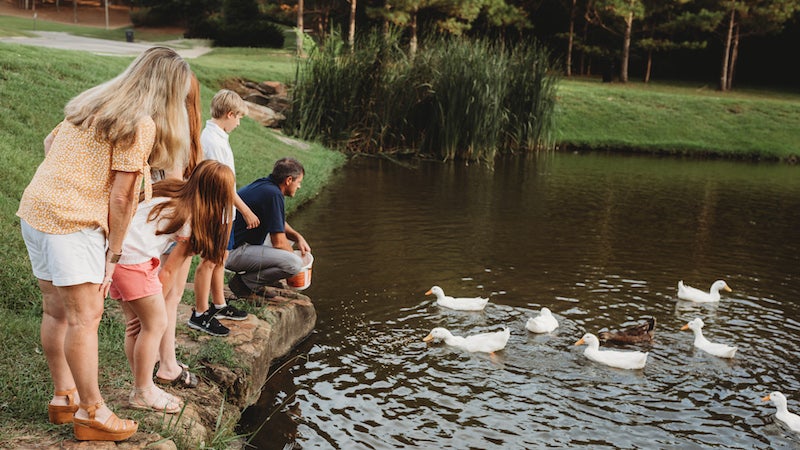
Out of the original twelve, the family successfully hatched six healthy ducks. Sadly one did not make it, and the rest were not fertilized. “That’s pretty good for people that didn’t know what they were doing,” Dave says. “No clue,” Stacy follows up.
At first, the ducks stayed in a small box with a heat lamp, but they nearly doubled in size every week. The family constructed a corral in their garage with a pen, complete with two baby pools, and after eight weeks, the ducks were almost at their full-grown size. “It felt like a really long time when you have to shovel their poo every day,” Stacy adds. But Ella objects: “It was fun!”
There was no need for any other entertainment in that time. “We all just sat in tailgate chairs and looked at what the ducks were doing,” Stacy recalls. “We didn’t even watch television that entire summer.”
The Loftins continually had to learn how to properly care for them. As ducks’ wings grow, they can start to grow outwards if they don’t have the exact balance of nutrients and proteins in their diet, a condition commonly known as “angel wings.” When one of the ducks exhibited this, the Loftins consulted with a veterinarian friend and of course Google. To treat it, they had to wrap athletic tape around the duck. “This was an operation. One person’s holding the duck, holding their wings down in the right position, and the other’s wrapping this wrap around the duck,” Dave describes. “It looked like a bowling pin with legs.” After a week though the duck in concern was totally fine.
The Loftins even purchased, constructed and stained the floating duck house that currently sits in the pond. “We wanted them to lay their eggs in there so they would be safe. We know the turtles love it, but the ducks get on there every now and then!” Stacy says. Dave also expressed his thankfulness for the Liberty Park Homeowners Association for their support and allowing the duck house to be in the pond. “They were very nice to let us do that,” he says.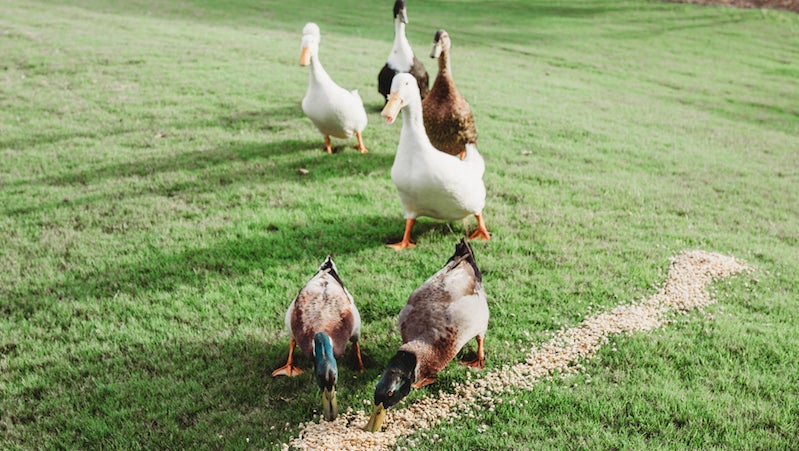
Back to the duckling tale, at the ten week mark, the ducks were old enough to be released into the pond, having grown their complete set of feathers. The day of the release was no small affair. “It was really special for my students. We invited all my class to come down, and all of the dads from my class carried the big heavy house, and we were all carrying a duck down the street,” Stacy says.
The transition to the pond was not smooth though. “When you first put the new ducks in water, they’re scared to death. You put them in and they want to get right out,” Dave says. At dinner that night, even after watching the ducks all day, Dave was still concerned about if they would make it through the night. He knew that the ducklings had to join “Daddy Duck,” as the family called the duck’s surviving parent, in order to adapt to the wilderness. So he went down to the pond and helped unite the ducklings with their parent with the help of a bucket of food. Daddy Duck was not too thrilled. “He went all around the pond, and they’re swimming in a line chasing him,” Dave says. Once the older duck finally got out, the ducklings followed suit and stayed with him as a flock from that point on. “I walked back to the house and said, ‘They’re going to be fine,’ and they were,” Dave recalls happily.
As the story of the ducks spread around neighbors and Stacy’s students, the newly minted “duck family” started receiving all sorts of animal-related calls. One was about a goose with a fishing lure stuck in its wing. Facing viciously defensive adult geese, the family sneakily corralled the flock into a corner, and with the help of a large piece of netting, separated the parents from the goslings and captured the injured goose.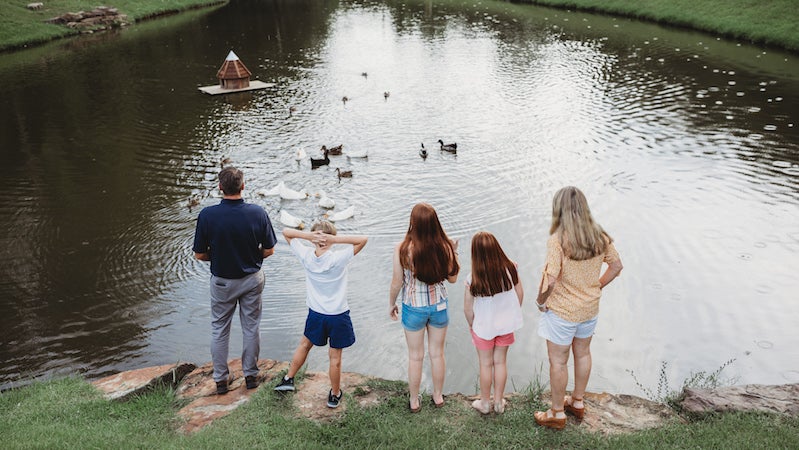
Dave describes the anything but simple affair: “We throw this net over, and we catch the baby goose and bring it in the garage. The door’s open, I go and I get these pliers. Stacy’s holding it down, the geese are all out here throwing a fit.” “Oh, mad as can be,” Stacey adds. “I’m holding the wing down and I just clip the hook, and pull it right out. It was fine,” Dave continues.
Today the Loftins have taken care of so many animals that they have lost track, but their care has its limits. Once Dave was tagged in a Facebook post about an injured raccoon. “Look, I draw the line at ducks,” he says with a laugh.
Three of the ducks that currently reside in the pond came about through Dave’s colleague. His family had been raising a flock of chickens for eggs, but the farm supply store had been completely out of chicks and they had come home with ducklings instead. The Loftins gave them advice and helped care for the ducks, and when the time was right, they came to live in the Liberty Park pond. Dave defended the newcomers against the territorial previous inhabitants via water gun for the first few days, but after that period of adjustment, they now get along comfortably.
Not surprisingly given the back story, the Loftins admit that they’re attached to the ducks. Every time they drive past the pond, they automatically look and count to make sure everyone’s there. And could they ever move? “We’ve thought about (it) but we can’t,” Stacy says.
Everyone’s Ducks
The Loftins truly believe that the ducks are not just theirs, but a part of the Liberty Park community. They welcome anyone to come to their yard to say hi if the ducks are at the house. “We don’t mind if they come up here and visit them or feed them!” Stacy adds. The Loftins also often take healthier food down to the pond to share when they notice people feeding the ducks, as bread is actually unhealthy for the animals.

